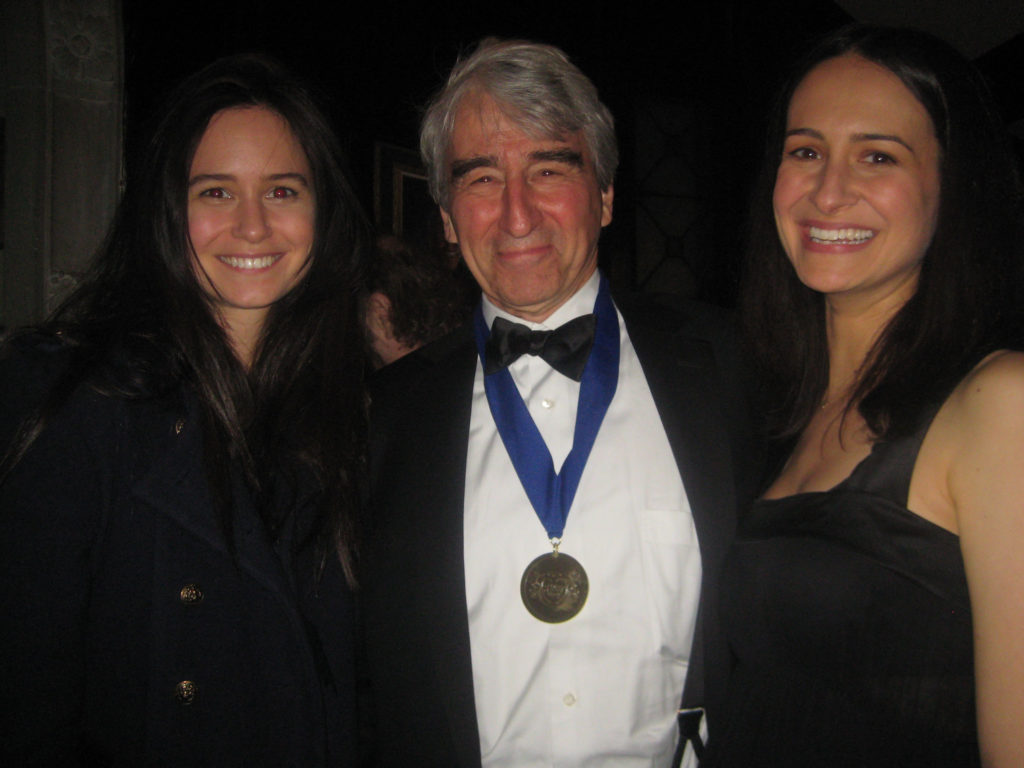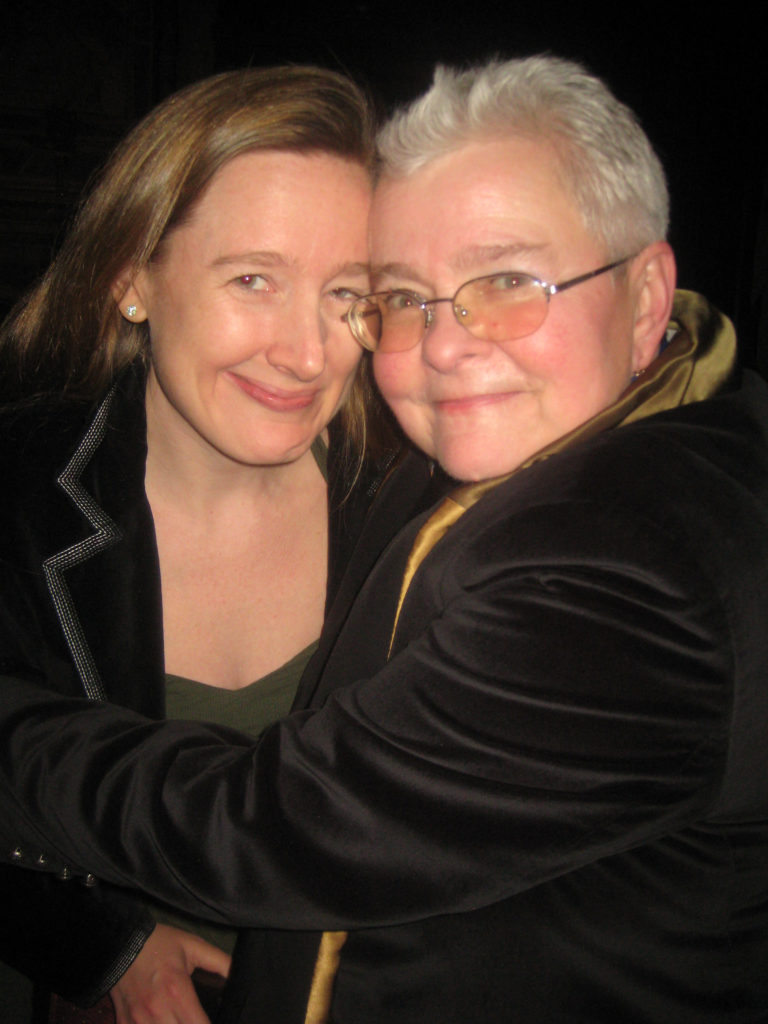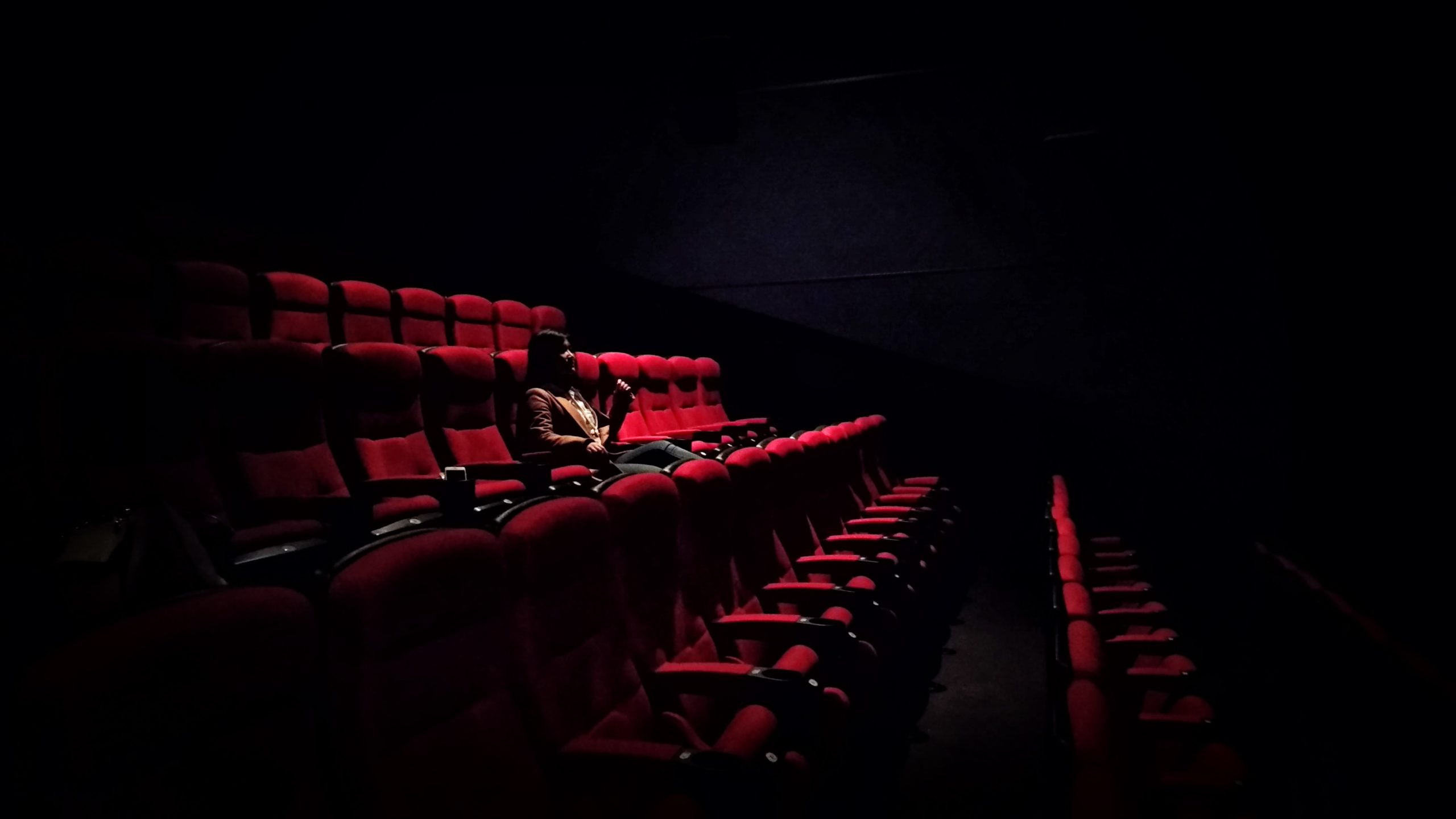Theater Hall of Fame ceremony: what they had to say
Inductee Sir Trevor Nunn walked around, star struck, looking up at the walls encrusted with names in raised gold letters. Sam Waterston accepted induction by saying, “For me, from the start, the theater [as opposed to TV] has always been ‘it.’ … This honor is, as I take it, for sticking to it.” Kristine Nielsen, veteran of many Christopher Durang plays, inducted the absent playwright (laid low by an accident just suffered performing at Yale) with a catalog of all the bitchy, depressive, psychotic and wildly funny characters he’s given her to play. And in posthumously inducting Martin Pakledinaz, fellow costume designer Susan Hilferty remembered him “at the flea markets, on his bicycle racing through New York.”

For the fullest available account of the evening, click here.
Perhaps the most affecting presentation speech was by playwright Sara Ruhl, doing the honors for her mentor, playwright Paula Vogel.
On inducting Paul Vogel into the Theater Hall of Fame, by Sara Ruhl
I am humbled and honored to introduce Paula Vogel to the Theater Hall of Fame tonight.
She and her plays are fearlessly playful, fiercely generous, radically inclusive, with a kind of incandescent strength. I love how she creates a modern architecture for grief. How she makes personal loss into something formal; how she laughs at terrible things. How she uses gesture and language; and how language can be a mode of alienation but also a source of solace. How she sees theater as a place for memory, and ghosts. I love her love of populism, and for the way she embeds politics in the personal, and the other way around.

The humanity in her work ultimately eclipses the politics of her work, which in the end, I think, is a radical political act, and changes our culture. How I Learned to Drive changed our culture of silence around sexual abuse. It changed us. It changed us individually, as audiences, and it changed the larger culture. I believe that there is a before How I learned to Drive and an after in our culture of silence. The silence became less deafening. Paula gives us strong guides in her plays, just as she gives her students guidance. How I Learned to Drive begins “sometimes you have tell a story so you can teach a lesson.” For Paula, narrative and teaching and wisdom are inextricably bound.
And I do need to mention her teaching, because Paula was my teacher, and the only reason I started writing plays. This is a rare opportunity to thank her. (Thank you, Paula.) In the last decade, when you look at who has won the Pulitzer prize—Quiara Hudes, Nilo Cruz, and Lynn Nottage—so many were Paula’s students. But for Paula, I don’t think prizes are the end-point. I think that her end-point is no less than giving audiences and writers permission to be human through the continuance of the play as an art form. She gives us searing language and imagery to help us explain ourselves to ourselves, to stretch our compassion and our complexity.
She is a true original, a giant of the dramatic form. I am grateful for her plays, for her teaching, her friendship, her life, her wife, and for the fact of sharing this earth with her for a little while.





Sorry, the comment form is closed at this time.